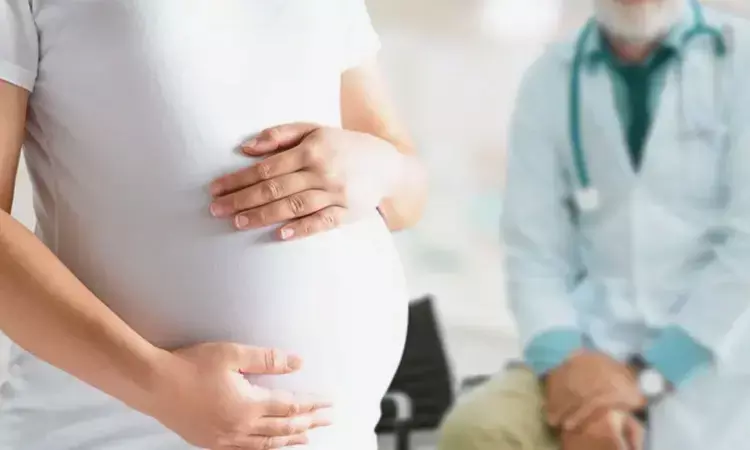- Home
- Medical news & Guidelines
- Anesthesiology
- Cardiology and CTVS
- Critical Care
- Dentistry
- Dermatology
- Diabetes and Endocrinology
- ENT
- Gastroenterology
- Medicine
- Nephrology
- Neurology
- Obstretics-Gynaecology
- Oncology
- Ophthalmology
- Orthopaedics
- Pediatrics-Neonatology
- Psychiatry
- Pulmonology
- Radiology
- Surgery
- Urology
- Laboratory Medicine
- Diet
- Nursing
- Paramedical
- Physiotherapy
- Health news
- Fact Check
- Bone Health Fact Check
- Brain Health Fact Check
- Cancer Related Fact Check
- Child Care Fact Check
- Dental and oral health fact check
- Diabetes and metabolic health fact check
- Diet and Nutrition Fact Check
- Eye and ENT Care Fact Check
- Fitness fact check
- Gut health fact check
- Heart health fact check
- Kidney health fact check
- Medical education fact check
- Men's health fact check
- Respiratory fact check
- Skin and hair care fact check
- Vaccine and Immunization fact check
- Women's health fact check
- AYUSH
- State News
- Andaman and Nicobar Islands
- Andhra Pradesh
- Arunachal Pradesh
- Assam
- Bihar
- Chandigarh
- Chattisgarh
- Dadra and Nagar Haveli
- Daman and Diu
- Delhi
- Goa
- Gujarat
- Haryana
- Himachal Pradesh
- Jammu & Kashmir
- Jharkhand
- Karnataka
- Kerala
- Ladakh
- Lakshadweep
- Madhya Pradesh
- Maharashtra
- Manipur
- Meghalaya
- Mizoram
- Nagaland
- Odisha
- Puducherry
- Punjab
- Rajasthan
- Sikkim
- Tamil Nadu
- Telangana
- Tripura
- Uttar Pradesh
- Uttrakhand
- West Bengal
- Medical Education
- Industry
Increased Risk of Aortic Events During Pregnancy may adverse Impact Maternal and Neonatal health: Study

Taiwan: A recent study published in the European Heart Journal confirmed the link between pregnancy and an increased risk of aortic events. The study revealed that pregnant women face an increased risk of aortic events from the onset of pregnancy through the first year postpartum.
The researchers found that maternal mortality was notably higher in pregnancies complicated by aortic events compared to those without. Additionally, neonatal outcomes were worse, with increased late mortality and a higher incidence of complications in infants born to mothers who experienced aortic events.
Aortic events during pregnancy are relatively rare but carry high morbidity and mortality rates. Considering this, Shao-Wei Chen, Center for Big Data Analytics and Statistics, Chang Gung Memorial Hospital, Linkou Medical Center, Taoyuan City, Taiwan, and colleagues aimed to examine the relationship between pregnancy and aortic complications and assess the associated maternal and neonatal outcomes.
For this purpose, the researchers retrieved records of pregnancies and neonatal deliveries from the Taiwan National Health Insurance Research Database from 2000 to 2020. The incidence rate ratio (IRR) was calculated to assess the risk factors associated with aortic events. Additionally, survival analysis was performed to compare maternal and neonatal mortality rates in cases with and without aortic events.
The study led to the following findings:
- 4,785,266 pregnancies were identified among 2,833,271 childbearing women, with 2,852,449 neonatal deliveries.
- In the vulnerable period (pregnancy), 57 aortic events occurred, and in the control period (non-pregnant), 20 aortic events were recorded.
- The incidence rates of aortic events were 1.19 per 100,000 pregnancies in the vulnerable period and 0.42 per 100,000 pregnancies in the control period.
- Pregnancy was identified as a significant risk factor for aortic events, with an incidence rate ratio (IRR) of 2.86.
- The 1-year maternal mortality rate was significantly higher in pregnancies with aortic events (19.3%) compared to those without (0.05%).
- Neonates born to mothers who experienced aortic events had a higher late mortality rate (6.3%) compared to those whose mothers did not experience such events (0.6%).
The findings from the large observational study suggest that pregnancy is associated with an increased risk of aortic events, particularly in women with coexisting connective tissue diseases or hypertensive disorders of pregnancy. The study also revealed that the 1-year maternal mortality rate was significantly higher in pregnancies complicated by aortic events compared to those without such events. Additionally, neonates born to mothers who experienced aortic events had a higher late mortality rate.
"Therefore, early identification of pregnant women at risk for aortic events—particularly those with concurrent hypertensive disorders, relevant family histories, or aortopathy—is essential for effective management and prevention," the researchers concluded.
Reference:
Chen, S., Chang, F., Chen, C., Cheng, Y., Hsiao, F., Tung, Y., Lin, C., Wu, V. C., Chu, P., & Chou, A. Pregnancy, aortic events, and neonatal and maternal outcomes. European Heart Journal. https://doi.org/10.1093/eurheartj/ehae757
Dr Kamal Kant Kohli-MBBS, DTCD- a chest specialist with more than 30 years of practice and a flair for writing clinical articles, Dr Kamal Kant Kohli joined Medical Dialogues as a Chief Editor of Medical News. Besides writing articles, as an editor, he proofreads and verifies all the medical content published on Medical Dialogues including those coming from journals, studies,medical conferences,guidelines etc. Email: drkohli@medicaldialogues.in. Contact no. 011-43720751


